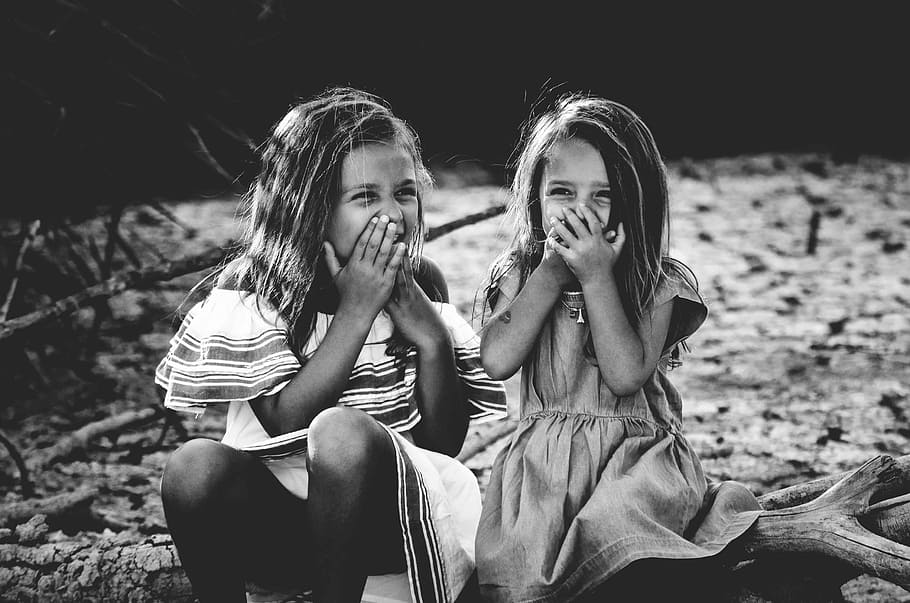“Brief, awkward exchanges reveal we differ on thoughts about pandemic life. It’s unsettling.”
By Candace Echols
Recognizing my old friends’ faces when I see them out and about is easy. However, something in me wonders—after the year we have just experienced—if they truly are the same. It can be disorienting from the moment we greet one another: hug—uh, wait, er—air-hug—sorry, I’m not sure. Do you hug anymore? An odd dance of unfamiliarity ensues and sets the tone for the rest of the exchange.
One of life’s great delights is that we are all born with different personalities. My three-year-old for instance is extremely social. On the day of her birth, I’m pretty sure she made friends with the nurses in the delivery room. She’s just one of those people! You know the type.
It’s been a while since she was around any children her age at church. But a year ago, when she was a mere toddler and had not yet achieved the “preschooler” status, she had a good friend named Nora. She and Nora had the best time together! You see, Nora is a social bug too and while they didn’t quite have the language to carry on conversations as two-year-olds, it was enough that they could just yell one another’s names and cackle and giggle until they fell on the floor, blown over by the hilarity of it all.
Last week, I noticed Nora’s family approaching as we were walking down a hallway. I couldn’t wait for the moment when the two would see each other and react like ol’ college pals do, hugging and laughing and reliving old times within moments. Nora’s family approached and to my shock, the girls looked right past one another!
I blurted out, “Did you not see? Look who just walked by!” She glanced over her shoulder. “It’s Nora!” She squealed with last year’s delight. “Nora—my best friend!”
In that moment, I realized that friendship has taken a beating this year, and my young daughter feels it as acutely as I do.
Like with my old friend, it goes like this: one of us will ask how the other one is doing. The answer is the same for most everybody, so somehow that diagnostic question doesn’t get at the heart of things. My friend, who before 2020 had walked through much with me, feels painfully unfamiliar.
I have no idea where she stands on say, mask-wearing outdoors or travel on airplanes. Who has her family buried in the last twelve months? Has she felt the sting of the sickness in her own skin? Is she homeschooling for the 173rd day today and how is she managing that fatigue? I have no idea how the pandemic has changed her and my guess is she doesn’t know either. I can tell by the look on her face that she’s wondering all of these same things about me, and I wish I could just download the answers so we could talk about something else. Something fun. Like old times. When we cackled and chortled and were blown away by hilarity.
The lines in her face though look at a little deeper. And because I’m her friend, I’d like to know why. I’d like to carry those burdens with her, even if I have to carry them from six feet away. Brief, awkward exchanges reveal we differ on thoughts about pandemic life. It’s unsettling. I hate that feeling—that hairline fracture in our relationship. It can seem like the slightest conversational misstep might cause a true break. That is disconcerting.
In moments like these a healthy dose of wisdom can set our friendships, the way a cast sets a split bone. Normally we are walking side-by-side with our friends, and it is easier to understand their motivations and decisions because we catch glimpses from their vantage point. But our social distance has prevented this empathy from flourishing. I don’t mean the two-meter distance — I mean the distance created by a lack of dinners and birthdays, funerals and regular Tuesdays. Together.
As I seek advice that will not just preserve my friendships, but re-create them as more life-giving than they were before, I find myself contemplating wisdom that’s been around longer than I have. When life starts to look different, less like pandemic-life and more like real life, we can lean into God’s wisdom to be quick to listen, slow to speak, and slow to become angry.
Quite honestly, that’s the opposite of my personal default. However, mothering a gaggle of children has given me some space to test it out, so at the very least, I know my weaknesses (and they are many). In friendships, this will look like tuning in to what triggers irritation or defensiveness or arrogance in me.
In a word, I will need humility. It’s a hazy term. But in practicality, that will involve my ears and my mouth, two things preschool teachers emphasize with vigor (i.e. “Do you have your listening ears on?” “Is your mouth closed?”). Seems like if we started learning these lessons in nursery school, we would have them mastered by adulthood. Alas…
There is lifelong value in listening more and choosing words wisely. As it turns out, this is what will bring healing and refreshment to our bones, and to our friendships.
After the year we’ve had, I don’t know a soul alive—even in the toddler class—who would turn that down!

StoryBoard features “The Yellow Chair ChronEchols” by writer Candace Echols. Candace recently published her first book, the children’s book Josephine and the Quarantine. Candace is a Midtown resident, wife, and mother of five. She has written for StoryBoard’s Page One Writing Workshops, and writes in quiet moments from her yellow chair.


